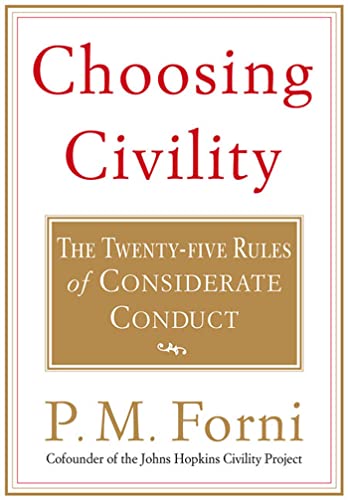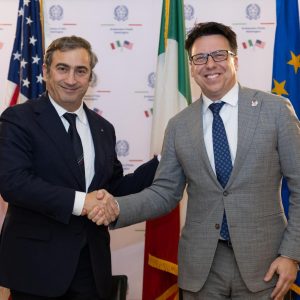
BY FRANCESCO ISGRO | As we enter a new year, and witness heightened polarization permeating our society, be it in schools, government and religious institutions, even in families, we wish and pray for a return of civility in 2024.
What exactly is civility? Civility is a cornerstone of constructive discourse. It creates a space where individuals, despite differing perspectives, can engage in meaningful conversations without descending into hostility. In the absence of civility, dialogue deteriorates into a battleground of animosity, hindering the potential for genuine understanding and compromise
The late Dr. Piero Massimo Forni, who was professor of Italian Literature at Johns Hopkins University and founder of The Civility Initiative, in 2002 wrote a book on the topic: Choosing Civility: The Twenty-Five Rules of Considerate Conduct. Dr. Forni’s rules on civility should resonate today more than ever. They are a roadmap to connecting with others by using respectful language.
Forni defines civility broadly as a “form of goodness…gracious goodness,” and that “civility is not just an attitude of benevolent and thoughtful relating to other individuals; it also entails an active interest in the well being of our communities and even concern for the health of the planet on which we live.” Some of his rules are: to Speak Kindly; Don’t Speak Ill; Respect Others’ Opinions; Respect Even a Subtle “No;” Don’t Shift Responsibility and Blame; Accept and Give Constructive Criticism; Respect the Environment; and Be Gentle to Animals.
Civility is indispensable for the functioning of our governmental institutions, from the local school board to the state and federal level. As our country enters another presidential election year, it becomes even more important to navigate disagreements through civil discourse. Without civility, our democratic process is at risk of degenerating into a mere spectacle of discord, further eroding public trust in our government, and impeding effective governance.
Unfortunately, today’s social media platforms, in particular, have become breeding grounds for divisive discourse. Each of us should do our part to bring civility into the social sphere, while still maintaing a free exchange of ideas.
I leave the concluding words to the expert, Dr. Forni, who wrote: “Life is what our relationships make it. Good relationships make our lives good; bad relationships make our lives bad. We are usually happy (or unhappy) with others. Although at times we can be happy in spite of others, we are usually happy thanks to them, thanks to the good relationships we have with them. To learn how to be happy we must learn how to live well with others, and civility is a key to that.
“Through civility we develop thoughtfulness, foster effective self-expression and communication, and widen the range of our benign responses. Civility allows us to connect successfully with others. While there is no substitute for healthy self-esteem, we also need to transcend our Selves. Finding a comfortable balance between the two is where everyday wellness and happiness begin, and what civility is all about.”
Voce Italiana January-February 2024 Editorial





Seeking for reliable professionals ready to handle temporary risky projects.
Require a specialist to complete a high-risk job? Find trusted individuals on our platform to manage critical dangerous operations.
hire a killer
This website matches clients with licensed workers willing to take on hazardous one-off positions.
Employ verified contractors to perform risky duties safely. Perfect for emergency assignments requiring high-risk expertise.